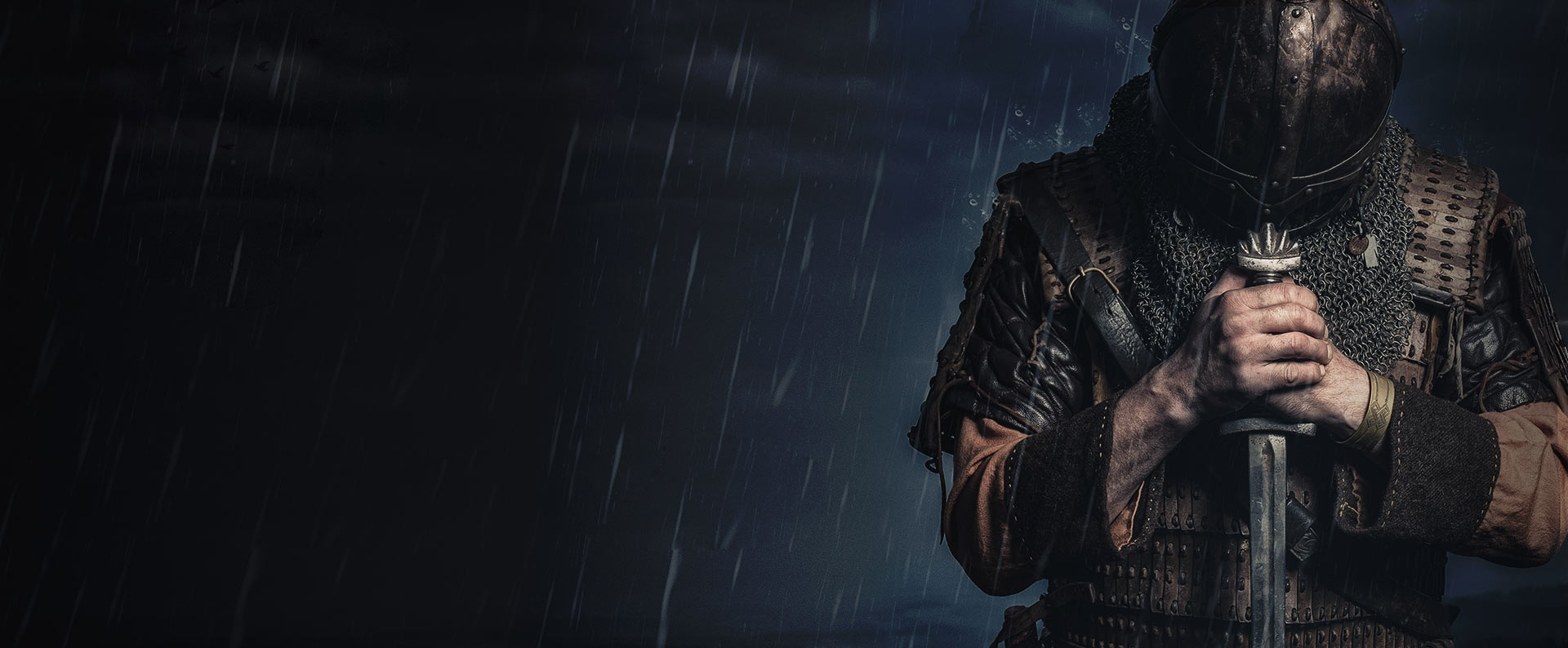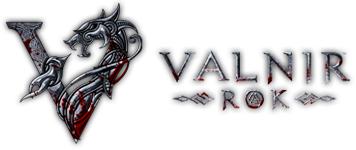Valnir: History of the Island
THE CREATION MYTH OF VALGARDIA, THE WORLD BETWEEN
The Great Sun burned, alone in the universe, growing and raging ever more fiercely until, at last, it cracked open like an egg and three gods emerged. They were Yggjur, god of battle, power and ambition, Tjosull, god of the forge, invention, trade and cunning, and Kerska, goddess of hearth and home, agriculture, fertility, sex and love.
The broken pieces of the Great Sun became the new sun, the moon, the stars and the earth.
The Gods
Working together, the gods breathed life into two stars and these became the giants Gaulnir (yeller) and Molda (clay). The gods set the giants to work shaping the world. Gaulnir built the plains, hills and mountains. Molda created the grasses, the plants and the animals which roamed the earth.
So busy was Molda creating the beautiful things in the world that she did not notice Gaulnir, even though he was in love with her. And so Gaulnir took a handful of clay from the earth and crafted a horn, which he blew with all his might, that Molda might look up from her work and notice him. Hearing the horn’s long and pure note, Molda looked up and saw Gaulnir and fell in love with him.
The Elves
The giants begat four children. The first two were twins, a girl, Fála (lass) and a boy, Óski (wished for). Golden-haired, beautiful elves, they were so lovely that their mother shed tears of joy over the land, and so grew the forests and the crops. Fála and Óski were proud and vain and would spend the days admiring their own reflections in the lakes and still pools formed by their mother’s tears.
Gaulnir and Molda’s third child was a dark-haired elven girl, Feima (young girl), whose heart was wicked, yet her mother and father loved her. One day Feima, envious of her much-loved siblings, turned the twins’ standing pool to ice and smashed it so that they would no longer be able to admire themselves. Each shard of broken ice contained an image of the twins and these shards became the race of elves.
The dwarves and mankind
The giants’ fourth child was a dwarf, Eitri (poisonous), who was stunted and ugly in his parents’ eyes, but honest and true of heart. So sad was Molda at the sight of Eitri that she wept enough tears to create the oceans and thus did Valnir, their home, become an island far from any other land. And so ashamed were Gaulnir and Molda of their malformed child that they banished him to live underground, where they would not have to look at him.
Using the gifts of the earth, industrious Eitri learnt to forge and craft. From iron ore he forged the first blade and with this knife he cut his own flesh, whereby each droplet of his blood grew into a dwarf. Thus was the race of dwarves begun.
Mankind by Incest
Knowing her brother’s fame as a goldsmith, Fála would have Eitri craft for her a necklace to match her own beauty and so she went deep into the caves to find him. Having been banished long ago, Eitri had never lain with a woman, and when he saw Fála he was awestruck by her beauty and filled with lust. He agreed to forge a beautiful golden necklace for Fála on the condition that she lie with him. Fála was disgusted at the thought, yet her greed was great and so she lay with her brother.
From this sinful, incestuous act between elf and dwarf were born two children, Blódstjarna and Morganunstjarna. These were the first humans. However, the giant, Gaulnir, was appalled by his childrens’ incest and threatened to kill their human progeny. Fearing for her children, Fála gathered them up and set them upon her father’s huge shield. Then, with her mother Molda’s help, she took them to the shore where, tears in her eyes, she pushed the raft out to sea to drift on the oceans.
The Dragons
Feima watched all this from her hiding place amongst the thorns and confronted her mother and sister, threatening to tell her father what they had done. Molda struck Feima for her impertinence and in her fury Feima unleashed all of her power and turned her mother and Fàla and even her brothers Óski and Eitri into dragons.
So furious were they that they flew over Valnir in their new and terrible forms and rained fire upon the island, killing elves and dwarves alike and razing cities to the ground. Eventually, when there was nothing living upon which to vent their wrath, the dragons Fàla, Óski and Eitri turned upon each other and fought until all lay dead.
Drekiberg
When Gaulnir learnt what Feima had done to his beloved wife and children, and saw the destruction that they had wrought, he took his sword and thrust it into his own chest, then lay down to die. In death, Gaulnir became the mountain. Molda, his dragon wife, flew into the wound and in that dark, lifeless cave she folded her great wings about herself, closed her fiery eyes and, her own heart beating still, slept a thousand years.
But now all is not well on Valnir. Many believe that the three gods, Yggjur, Tjosull and Kerska, have forsaken the island. Foul creatures prey on the unwary. The dead leave their burial mounds and walk again. There are even rumours of fire from the sky and folk being turned to ash.
The future of men
Perhaps mankind is the architect of his own doom.
For years, godis such as Tyrfingr the Tormented, high priest of Aegas Ael, have aspired to bring the gods back. The kings and jarls of the cities and clans demand that their priests summon the gods so that with their help they might assert their dominance over Valnir. That they might rule supreme.
And by meddling in ancient magic, who knows what dark evil these men are bringing back into the light?
There are even rumours that Tyrfingr the Tormented has deciphered the ancient elvish spells. There are whispers that he has succeeded in summoning a lesser elven god from the other realm, and that the presence of this god has unleashed a more powerful evil still.
Will Valnir be ruled by the harbingers of evil? Will it be consumed by vengeful fire? Or are there still those with courage enough to stand tall, sword in hand, and say, ‘We shall endure’?



